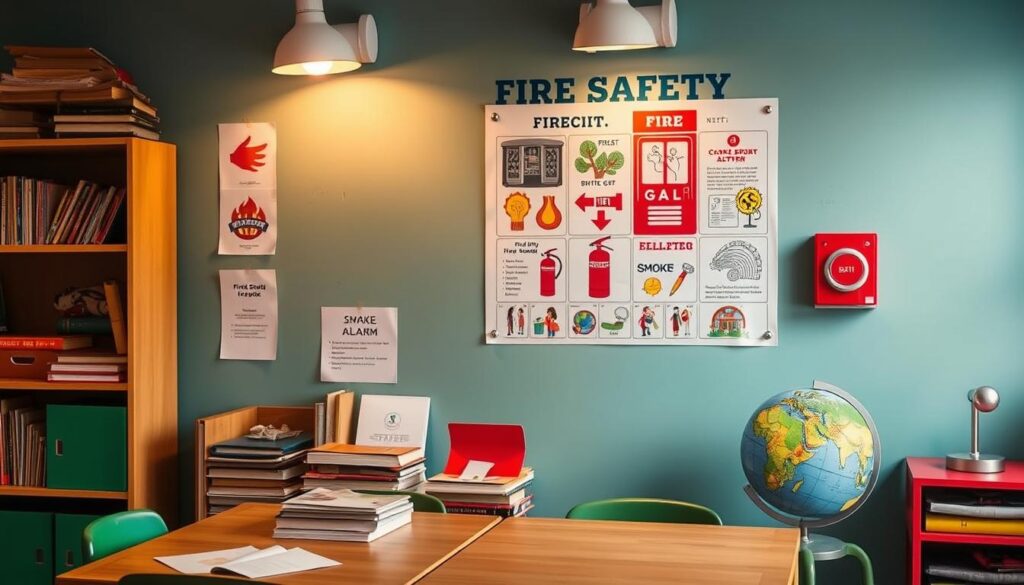Ever said “mum” to your teacher by mistake? It’s a funny slip that shows how our minds work. It’s about the special bond between teachers and students, and how we get used to calling certain people “mum”. This article dives into why this happens.
Imagine you’re in class, focused, and then you say “Excuse me, mum”. Your teacher looks surprised, and you feel embarrassed. This is a Freudian slip, showing how our thoughts and feelings mix together.
As kids, we call our caregivers “mum” or “dad”. This makes us link authority figures to parents. So, when we meet teachers, our brain uses the same words, leading to the “mum” slip-up.

Understanding the Freudian Slip
Ever called your teacher “mum” or “dad” by mistake? It might seem silly, but it could show what’s really going on in your mind. The Freudian slip is a fascinating area of study in psychology.
What is a Freudian Slip?
A Freudian slip is named after Sigmund Freud. It’s when you say something you didn’t mean to, showing what you really think or feel. These slips can be funny, awkward, or revealing. They give us a peek into how our minds work.
Exploring the Subconscious Mind
Freud thought these slips were not random. He believed they came from our subconscious mind. Our subconscious holds lots of thoughts and feelings we’re not aware of. By looking at Freudian slips, we can learn more about our subconscious and how it affects us.
| Characteristic | Description |
|---|---|
| Unintentional | Freudian slips occur without conscious effort or intention. |
| Revealing | These slips are believed to expose your underlying thoughts, desires, or emotions. |
| Subconscious Association | Freudian slips are rooted in the complex interplay between your conscious and subconscious mind. |
Learning about Freudian slips can help us understand ourselves better. It’s a way to grow and become more self-aware.
“The Freudian slip is when you say one thing but mean your mother.” – Sigmund Freud
The Bond Between Teacher and Student
The bond between a teacher and a student is filled with respect and admiration. Students often see their teachers as authority figures, similar to parents. This emotional connection can make them feel like they have a maternal or paternal figure in the classroom. This idea, called transference, can make teachers and parents seem like one and the same, leading to slips like calling a teacher “mum”.
Respect for Authority Figures
Young students have a lot of respect for their teachers. They see them as role models and figures of authority. This respect comes from our early days with parents and caregivers. As we get older, this respect can move to other authority figures, like teachers, who represent knowledge, discipline, and guidance.
Transference and the Maternal Instinct
The idea of transference is key in the teacher-student relationship. Students might unknowingly share their feelings from their parent relationships with their teachers. This maternal instinct can create a strong emotional bond, leading to slips like calling a teacher “mum”. This is a natural part of psychology and doesn’t mean there’s anything wrong with the teacher-student relationship.

“The teacher-student relationship is a unique and complex one, built on trust, respect, and a shared pursuit of knowledge.” – Dr. Emily Wilkinson, Educational Psychologist
Understanding the teacher-student bond and the reasons behind the occasional “mum” slip can help us handle these moments with kindness and understanding.
The Power of Habit and Familiarity
The human brain loves familiarity and forming habits. This can lead to accidentally calling a teacher “mum”. Being around a teacher a lot and the classroom’s familiar feel can make the teacher-student bond feel like parent-child. This automatic link, hidden in our minds, can cause us to say “mum” by mistake.
Habits and familiarity are amazing parts of us. Our brains love patterns and routines, which helps create strong connections. In school, being familiar with a teacher can make us feel close to them, like family.
This isn’t just in school. We often group people based on what we think they are like, which can lead to calling a teacher “mum”. Our brains are wired to recognize patterns and form habits, which plays a big part in this.
At the end, the power of habit and familiarity shows how complex our minds are. By understanding these deep workings, we can learn more about the quirky but real behaviors we see every day.
“The human brain is a magnificent organ; it starts working the moment you are born and doesn’t stop until you get up to deliver a speech.”
why do we accidentally call teachers mom
Ever slipped up and called your teacher “mum”? This is a Freudian slip, showing how our subconscious links authority figures like teachers.
The bond between teacher and student is deep. It’s built on respect, admiration, and a bit of the maternal or paternal. As young minds, we see our teachers as figures of authority, like our parents. This can lead to moments where we accidentally call them “mum”, showing the strong connection.
But why do these slips happen? Habit and familiarity play a big part. We’re used to calling our mothers “mum”. When we meet another authority figure, our brain might mix them up, causing the slip.
So, if you accidentally call your teacher “mum”, don’t worry. It’s a common and funny mistake. It shows how complex our emotions, associations, and habits are. It’s a peek into the amazing workings of our minds.

Confusing Authority Figures
Calling a teacher “mum” by mistake often comes from mixing up parental and teacher roles in our minds. As we grow, we learn to respect both our parents and teachers. This mix-up can cause us to accidentally call a teacher “mum” or “dad”.
When Parents and Teachers Blur
It’s common to confuse parents with teachers, especially in our early years. Kids see teachers as like parents, and this feeling stays with us as we get older. This is why we sometimes call a teacher “mum” or “dad” by mistake.
This mix-up is more than just a funny mistake. It shows how much we respect and trust both our parents and teachers. Our culture, media, and personal stories also play a part in this.
So, accidentally calling a teacher “mum” shows how close parents and teachers are in our lives. It’s a small mistake that highlights the deep connections and feelings we have towards authority figures.
The Impact of Pop Culture
Popular culture shapes how we see teachers. From the “strict but caring” image to the “mentor” role, media shows us teachers in many ways. These images can make us think of teachers as parents, leading to us calling them “mum” by accident.
Portrayal of Teachers in Media
Media greatly influences our view of teachers. We see them as strict or caring, and these images stick with us. This pop culture influence and subconscious association with teachers is strong.
A study in the Journal of Educational Psychology shows media’s effect on students’ views of teachers. It shows that media shapes our real-life interactions with teachers.
| Archetype | Example in Media | Influence on Perception |
|---|---|---|
| Strict Disciplinarian | Mr. Gradgrind in “Hard Times” by Charles Dickens | Reinforces the idea of teachers as authoritative figures to be feared or respected, rather than trusted mentors. |
| Nurturing Mentor | Professor Albus Dumbledore in the Harry Potter series | Promotes the view of teachers as caring, supportive figures who guide and inspire their students. |
Understanding pop culture influence and media portrayal of teachers helps us see why we call them “mum” by mistake.
Dalton, M.M. (2010). The Portrayal of Teachers in Prime-Time Television Dramas. *Journal of Educational Psychology*, 102(3), 631-646.
Individual Experiences and Associations
Your own experiences and personal connections can make you accidentally call a teacher “mum”. These subconscious links are formed by your family, upbringing, and past relationships with authority figures.
If your mother was both your caregiver and disciplinarian, you might see teachers as “mum” too. This subconscious association can cause those slips in the classroom.
Also, if you have fond memories of a caring teacher, your personal associations might make you call other teachers “mum” by accident.
- Your experiences and how you see authority figures matter a lot in this.
- Family dynamics and past teacher relationships shape these mental connections.
Don’t overlook the impact of individual experiences and personal associations in why we sometimes call teachers “mum”. It’s a personal and subconscious thing that differs for everyone.

Book Recommendation: Colored Television
If you’re looking for a satirical take on race, marriage, and betrayal, check out “Colored Television” by Danzy Senna. This novel is about an author trying to finish her book but gets caught up in Hollywood’s world. It’s witty and full of insight.
Senna’s sharp writing gives us a fresh look at modern life. Her main character faces challenges in creativity, relationships, and what society expects. It’s perfect for those who love deep social commentary or just great stories.
“Senna’s novel is a masterful blend of satire and poignancy, tackling the nuances of race, marriage, and the pursuit of artistic fulfillment with a deft touch.” – The Guardian
Read this book and see Senna’s skill in creating a story that makes you think. It’s great for fans of Senna or newcomers. “Colored Television” is a must-read for a deep and fun literary journey.
Fire Safety Reminder
Energy costs are going up, making heating-related fires a bigger risk in the UK. The National Fire Protection Association says heating equipment causes many home fires and injuries. Fires in healthcare places often start from cooking, heating, or intentional actions, showing fire safety is key everywhere.
Preventing Heating-Related Fires
Keeping yourself and your family safe is vital. Always follow the maker’s guide when using portable heaters and other heating tools. Make sure these items are safety checked and work well. Keep them away from anything that can catch fire and watch them closely, especially around kids.
By doing these simple things, you can lower the chance of fires caused by heating. This helps keep your home and community safe.

Remember, fire safety is everyone’s job. Stay alert, and we can stop sad heating-related accidents together.
The Psychology Behind the Slip
Ever accidentally called a teacher “mum” or “dad”? This is called a Freudian slip. It shows how our subconscious mind works. It helps us understand the complex links and feelings in our daily talks.
Freudian slips come from a mix-up between teachers and our parents. Our brains link those who guide and care for us with our parents. This can lead to slips, as our subconscious looks for comfort and familiarity.
Studies show these slips are not random. They reveal our thoughts, feelings, and biases. By looking at when and how these slips happen, we learn more about our minds.
Freudian slips are a peek into our minds. They show the complex dance between our thoughts and feelings. By enjoying these quirks, we learn more about ourselves and how our subconscious shapes our days.
Cultural Differences and Norms
It’s important to know that saying “mum” to a teacher can be seen differently in various cultures and social norms. What’s common in one place might seem odd or wrong in another. Knowing how culture affects these slips helps us understand them better.
A TikTok video about seat switching on a plane got over 3.4 million views. People were talking about a mom who didn’t want to switch seats with a child. This shows how different parenting styles and expectations are when flying with kids. Some see it as a must to sit together, while others just see it as a nice thing to do.
Our views on these moments can change based on culture and personal experiences. One person talked about the trouble of changing seats with kids around 11 and 15. Another was upset because they only had 90 minutes of sleep before the flight and then had to switch seats. These stories show how our backgrounds and personal situations affect how we see these small social moments.
| Cultural Differences in Addressing Teachers | Prevalence of “Mum” Slip | Social Acceptance |
|---|---|---|
| United Kingdom | Relatively Common | Generally Acceptable |
| United States | Less Common | May be Seen as Unusual |
| Japan | Rare | Often Considered Inappropriate |
This table shows how cultural differences affect saying “mum” to teachers. Knowing this helps us be more understanding and aware in these situations.
“The way we address authority figures is deeply rooted in our cultural upbringing and social norms. A Freudian slip that may be seen as endearing in one context could be viewed as inappropriate in another.”
Strategies to Avoid the Awkward Moment
Freudian slips can be funny but also embarrassing, especially at work. It’s important to learn how to avoid these mistakes. Mindfulness and self-awareness help you control your words better, so you can catch and fix slips before they happen.
Mindfulness and Self-Awareness
Mindfulness helps you stay in the moment and avoid slips. By paying attention to your thoughts and speech, you can spot subconscious influences on your words. Knowing yourself well also helps you catch and fix verbal mistakes before they occur.
- Take a moment to think before you speak. This pause can help you avoid slips.
- Watch your body language and facial expressions. They show what’s going on inside you.
- Listen carefully to what others say. This helps you stay focused and avoid slips.
- See Freudian slips as chances to learn, not as embarrassing moments. This mindset makes you more open to them.
To avoid awkward moments, focus on being more aware and mindful. Paying attention to your thoughts and speech helps you control what you say. This way, you can have smoother and more professional conversations.
| Emotional Signs of Self-Harm | Physical Signs of Self-Harm |
|---|---|
| Big mood changes Irritability Feelings of sadness or hopelessness Feelings of worthlessness and guilt | Unexplained injuries Agitation Appearing slow or tired Having low energy levels |
“Practising mindfulness and cultivating self-awareness can heighten your conscious control over your speech, allowing you to catch and correct these slips before they occur.”
Using strategies like pausing, watching your body language, and listening well helps you stay aware. This way, you can handle both work and personal talks with ease, avoiding the awkwardness of slips.
Conclusion
Exploring the idea of accidentally calling a teacher “mum” shows how strong the bond between students and teachers can be. This slip of the tongue reveals the deep respect and trust in these relationships. It reminds us of the lasting impact teachers have on our lives, shaping our minds and leaving a mark on our psyche.
While awkward moments can happen, we should see these slips as a sign of a teacher’s powerful role in our early years. Understanding the psychology behind these moments helps us be more empathetic and aware. It also makes us appreciate the complex mix of our conscious and subconscious thoughts.
So, when you accidentally call a teacher “mum,” take a moment to think about the strong connections we share. The Freudian slip is more than just a slip of the tongue. It opens a window into the complex world of human experience, where our understanding of ourselves and others is always evolving.
FAQ
What is a Freudian slip?
A Freudian slip is when we say something we didn’t mean to. It’s thought to show what’s really on our minds.
How do Freudian slips provide insights into the subconscious mind?
They are seen as a peek into our subconscious. Sigmund Freud believed they reveal our deepest thoughts and feelings.
Why do students often view teachers as authority figures akin to parental figures?
Students see teachers as figures of respect and admiration. This makes them feel like parents. It creates a deep emotional bond.
How do habits and familiarity contribute to the tendency to accidentally call a teacher “mum”?
Our brains love familiarity and habits. Being around teachers a lot makes us feel close to them. It’s like being with family.
What role does the blurring of boundaries between parental and authoritative figures play in this phenomenon?
The mix-up between parents and teachers in our minds is key. We learn to respect both. This mix can make us call teachers “mum” by accident.
How can the portrayal of teachers in popular culture influence our subconscious associations?
Media often shows teachers as strict but caring. Or as mentors. This makes us see them as like parents. It makes us call them “mum” by mistake.
How can individual experiences and personal associations impact the likelihood of accidentally calling a teacher “mum”?
Our past experiences shape how we see authority figures. This can lead to calling teachers “mum” without meaning to.

